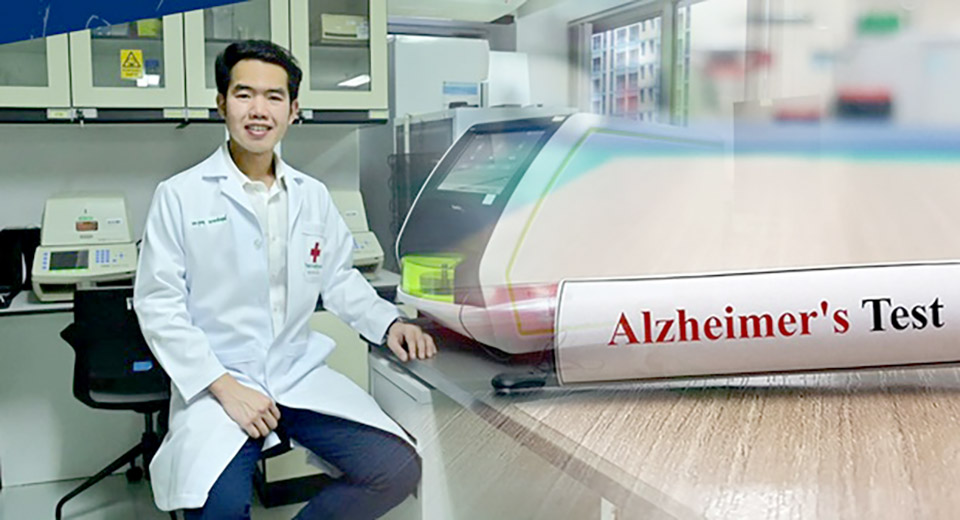
Chulalongkorn University has announced research on a blood test for markers of Alzheimer’s Disease that can give a 10-year warning to people, which could lead to slowing the development of dementia during their elderly years.
Poosanu Thanapornsangsuth, M.D., head of the Neurodegenerative Disease Biomarker Project at the Thai Red Cross Emerging Infectious Diseases Health Science Center, Faculty of Medicine, Chulalongkorn University, has revealed that the center has taken a more affordable approach with a less complex and less painful procedure yielding more accurate results. As a result, people will get an advanced warning of their condition, allowing them to take actions and options to slow or perhaps prevent dementia in their old age.
According to the director, the Center uses immunological techniques to perform blood tests, with the analysis done by Simoa (Single molecule array) or LC-MS (Mass spectrometry) that can indicate the presence of latent Alzheimer’s, as well as the use of Neurofilament light chain, which is a brain cell loss test. He stated that the test costs are low compared to other methods which allow the public easier access to the service. The test is also simple and safe, requiring only 10 cc. of blood for a single test, with results arriving in about 2 months.
Dr. Poosanu stated that Alzheimer’s has an incubation period of 10 to 15 years before symptoms appear, and this is referred to as latent Alzheimer’s. Patients have no symptoms and are able to work regularly. However, by the time the disease has progressed to the point where symptoms appear, the patient will have lost a significant number of brain cells, and rehabilitating or salvaging the brain is difficult. He stressed that the disease is a nightmare for patients since it erases the patient’s identity over time, causing extreme difficulties in life and affecting loved ones in the family.
Around 50 million people worldwide are currently suffering from dementia. According to reports, there are 700,000 such individuals in Thailand, 500,000 of whom have Alzheimer’s disease. It is estimated that if no steps are taken to delay or prevent dementia, the global number of elderly people suffering from dementia would triple during the next thirty years. (NNT)

 |
 |
 |




